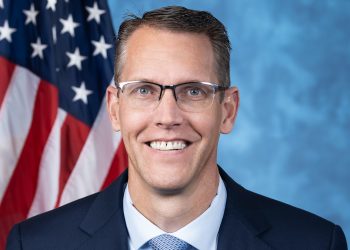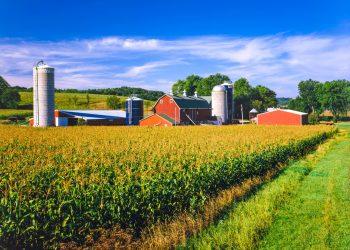This week is National Agriculture Week – a time to recognize, celebrate, and thank the hardworking men and women who feed and fuel our country and the world. Our farmers and producers work long hours in all kinds of weather to grow and raise the food that we put on our tables, the feed that we use for our livestock, and the fuel that we put in our cars, trucks, and tractors. We retain the cherished status as the breadbasket to our country and the world because of the sacrifice, dedication, and long-held traditions of our farmers and their families. We cannot thank them enough for all that they do.
Serving on both the House Ways and Means Committee and the House Agriculture Committee, I’ve made it a point to bring Iowa’s voice to Congress when it comes to agricultural matters, energy issues, and other priorities vital to our agricultural community. It’s a major reason why I launched my Feenstra Agriculture Tour last year – and have continued it this year – to hear directly from our farmers and producers and better understand their concerns and needs. These candid conversations and face-to-face interactions have informed my legislative agenda in Congress and inspired me to work every day to ensure that we implement policies that benefit our producers – not hinder their already difficult work.
Now, having made nearly 40 stops on my agriculture tour, I have my sights set on the upcoming Farm Bill and how I can best advocate for Iowa agriculture.
Inflation, unpredictable weather, and economic uncertainty have made crop insurance an even more important necessity for our producers. This safety net is critical for farm operations to remain profitable during economic downturns and severe weather events that can level entire fields of crops and threaten the safety of livestock. Crop insurance policies can be even more important for new and young producers who are just starting out and planting their roots. That’s why I introduced the Crop Insurance for Future Farmers Act, which would amend the definition of “Beginning Farmer” in federal law from 5 crop years to 10 crop years and provide a 15% discount for young farmers in their first two years of operation and eventually ratchet down to 10% during their fifth though tenth years. By lowering the cost of crop insurance for the next generation of Iowa farmers, we can grow our rural communities, strengthen our economy, and keep China away from our farmland.
I’m also passionate about opening new export markets for our producers. With roughly $16.6 billion in agricultural exports in Fiscal Year 2022, Iowa is the second largest exporter of agricultural goods nationwide. That same fiscal year, we exported $4.8 billion of soybeans, $3.3 billion of corn, $2.7 billion of pork, $721 million of beef, $260 million of poultry products like turkey, and $235 million of dairy products. Yet, instead of supporting greater export opportunities for our producers, the Biden administration has abandoned American agriculture and failed to negotiate new trade deals. So, I introduced legislation – called the FRIDGE Act – to build export infrastructure – including cold-chain storage – in new and developing markets so that our perishable goods can reach consumers across the globe and our farmers can sell to more locations. This, in turn, will prove financially beneficial for our agricultural community.
On the trade front, I also introduced legislation to address the threat that foreign animal disease outbreaks pose to our export capacity. My Safe American Food Exports Act – or SAFE Act for short – would codify USDA’s role in negotiating regionalization agreements that allow livestock, poultry, and other animal products from unaffected areas of the country to continue to be safely exported in the event of an animal disease outbreak. My bill also establishes a notification system within the Import and Export Library to alert our producers to changes in the import or export status of certain commodities.
While these are just a few examples of bills that I’m working to include in the Farm Bill, I have also introduced legislation to help our farmers purchase precision agriculture equipment at affordable prices, fully fund classroom agriculture programs for our students, support agriculture curricula at our community colleges, stop the overreach of WOTUS, and keep American farmland in the hands of American farmers.
Representing the second-largest agriculture-producing district in the U.S. House of Representatives, I will continue my work to pass a strong Farm Bill for Iowa, stand up to the Biden administration’s attacks on rural America, and be the strongest voice for agriculture and biofuels in Congress.















